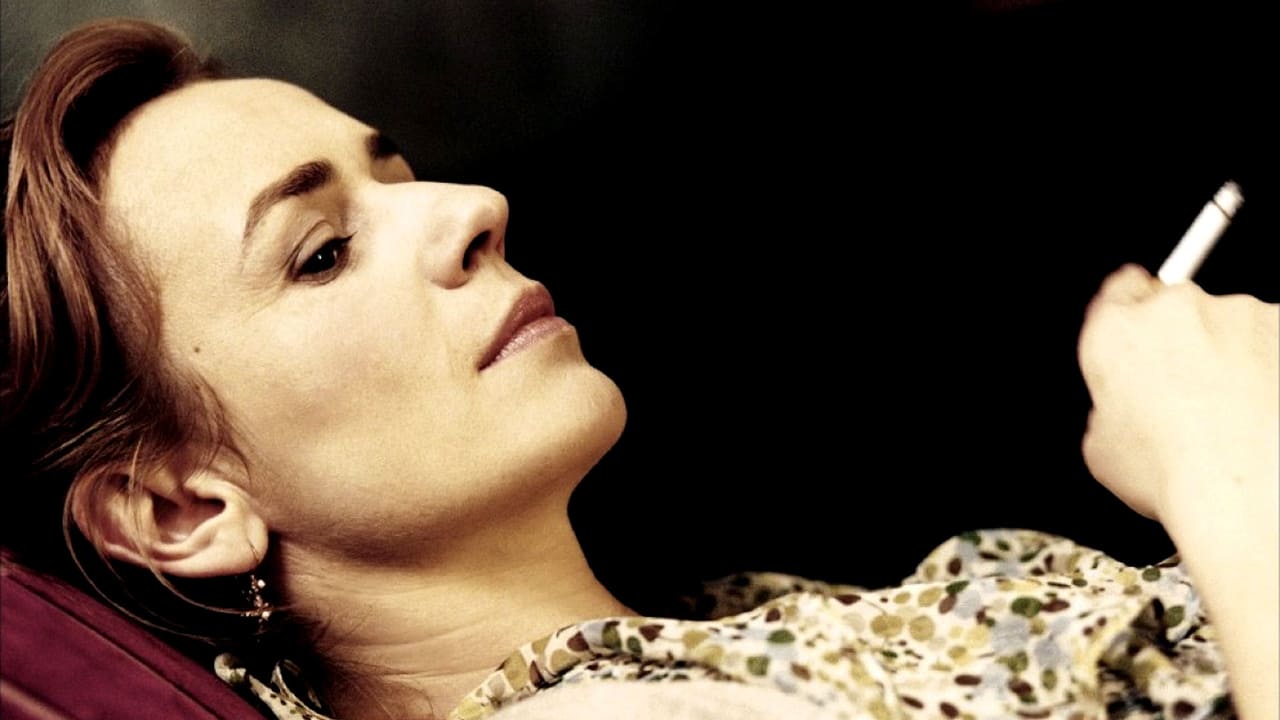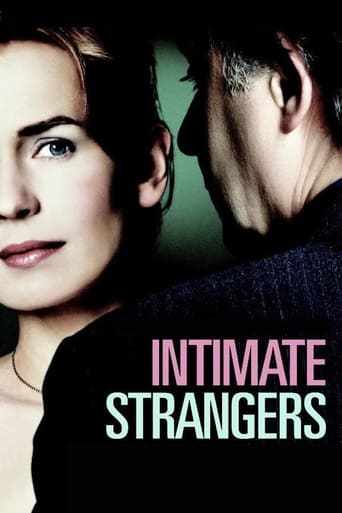



What makes it different from others?
hyped garbage
While it doesn't offer any answers, it both thrills and makes you think.
View MoreAll of these films share one commonality, that being a kind of emotional center that humanizes a cast of monsters.
View MoreThe tax lawyer mistaken for a psychiatrist ended up healing his "patient" by just listening, not judging, and by being there for her. Having some knowledge of psychotherapy, this impressed me. The real psychiatrist was giving Faber advice about how he should "treat" the woman, but in the end Faber followed his own instincts. The two main characters were fascinated by each other and this was clear, but they didn't express their attachment in a conventional way. I found this movie compelling because it was difficult to anticipate what would happen and the characters seemed real. The impact of real loneliness and what it makes people do was well shown. I was also pleasantly surprised at how the lighting, the sets and the general mood lightened as the film went on, echoing the more optimistic outlook that Anna developed. It was encouraging to think that by sharing intimate problems, it is possible to work through them, even if the other person only listens and doesn't offer solutions.
View MoreThere's an intriguing premise behind Patrice Leconte's film 'Intimate Strangers': a tax consultant starts receiving visits from a woman who mistakes him for a therapist, but in time he starts to wonder whether it is in fact she who is deceiving him. With nice performances from its small cast, the film avoids descending into pure thriller, but unfortunately suffers from the opposite vice: that while the premise is enticing, the film never truly moves beyond it, ultimately there's too little story here and that which does exist feels somewhat contrived. In other words, the subtlety of the mood shifts within the story are overshadowed by the mechanics used to bring these about: the result is quiet and distinctive film, but also a modest one.
View MoreI've just finished watching this film and I'm left wondering with all the talent at his disposal in sandrine bonnaire and fabrice luchini, anna and william respectively, patrice leconte could have taken the direction this film eventually took. neither character, at least to my mind was developed sufficiently enough for us to delve under the surface, and discover for ourselves, the trepid nature of their coaxial relationship. A relationship born in unlikely circumstances as Anna mistakenly enters the office of a tax adviser whom she believes to be her psychiatrist. She starts by divulging her martial problems, and through subsequent visits unburdens herself on the reticent accountant. leconte and tonnerre dispel any illusion of romance at the outset, which may have tarnished my viewing pleasure, but for the first half an hour of the film it doesn't matter as you're engrossed in the situation the two find themselves in. anna says something along the lines, "my husband wants me to sleep with other men" william "it would have to be someone you love, have you..." (I paraphrase). anna "I have yet to meet him" fabrice throws her a wounded look with which she acknowledges with a fierce stare, as if to beckon his burgeoning desire. The film does have its moments, though it lacks proper dialogue and what little dialogue there is only serves to move the story along, devoid of wit or charm. maybe I'm being too harsh. I'll let you decide.
View More(Note: Over 500 of my movie reviews are now available in my book "Cut to the Chaise Lounge or I Can't Believe I Swallowed the Remote!" Get it at Amazon.)This is the most nuanced of Patrice Leconte's films that I have seen. Everything is carefully constructed at a measured pace with just enough revelation as we go along, but no more, so that we can follow the plot's development easily. The film is cut as close as a barber's shave and is as neat as a pin.Anna (Sandrine Bonnaire), who is a bit of a tease, finds herself in what she thinks is a shrink's office. (There's a magazine on the desk whose title is partially obscured so that only the word "analyst" appears to her eyes, thereby confirming her expectations.) Behind the desk however is William Faber (Fabrice Luchini) who is a tax accountant and perhaps the last man in the building who could conceivable help Anna with her marital problem. He is after all something of recluse. He doesn't drive. He usually eats alone in his apartment, which apparently is the same place as his office, watching TV (in one scene it's Humphrey Bogart as Phillip Marlowe with French subtitles). He is only marginally experienced in the ways of human relationships and knows little about psychoanalysis. (The "analyst" magazine on his desk was on economic analysis.) She flips a zippo cigarette lighter, lights a cigarette like someone new to smoking, and begins to tell a somewhat astonished Faber about the intimate details of her married life, mainly that her husband won't touch her anymore.I previously saw Bonnaire in La Ceremonie (1995), directed by Claude Chabrol, in which she played a mean, hateful housemaid, and she was very good there. Here she is playful, almost childish at times, as she reveals her life to this stranger.This is the first time I have seen Luchini who is very properly Parisian in his carefully knotted tie (worn even while preparing his solitary meal). His acting style is markedly laid back. He carries an almost continual look of surprise on his face--astonishment almost--with his eyes made big and round and his demeanor controlled and taciturn.Because Anna is so direct and begins talking about herself almost immediately and because Faber is a most polite man who will not interrupt her, it is several minutes before he has the opportunity to advise her that she really wants the office down the hall where the psychoanalyst Dr. Monnier holds forth. By then he is intrigued with her and smitten, and is slow, very slow, to advise her of her error.Also because Anna likes to talk about herself like a teenager and because William Faber is a practiced listener, there is a certain simpatico that automatically develops.One can see where this is heading. She talks, he listens. She performs, so to speak; he appreciates. Faber is the kind of man, as his "ex" points out, who never makes the first move. This is good for Anna because it allows her to become comfortable with him before she has to respond.The complications begin with the appearance of Anna's husband who first makes an unusual sexual demand of the very proper tax accountant, and then when that is refused, treats Faber to a most upsetting motel scene through a window across the way. Yes, it's a little contrived (as is the movie's premise). But I like the way Leconte didn't let us see the scene and only revealed later what Faber had seen.Near the end of the film we see Faber for the first time sans necktie, which we can guess signals a change in the man. The film ends in a most artistic way with a shot from above as Anna lies stretched out on a classic analyst's couch in a cute frock with her ankles crossed and Faber... Well, we see the credits roll down the screen and we can imagine what will eventually happen.My favorite Leconte film is Ridicule (1996). I also liked his La Fille sur la pont (1999). If you haven't seen his work you are in for a treat. He is witty in a sly way (especially here in Confidence trop intimes) and can be strikingly original. Like all good directors, he never loses track of the audience and the needs of the audience. His films are carefully cut so that we always know what is going on, but without any heavy-handedness.See this for Patrice Leconte, one of France's most talented film makers.
View More